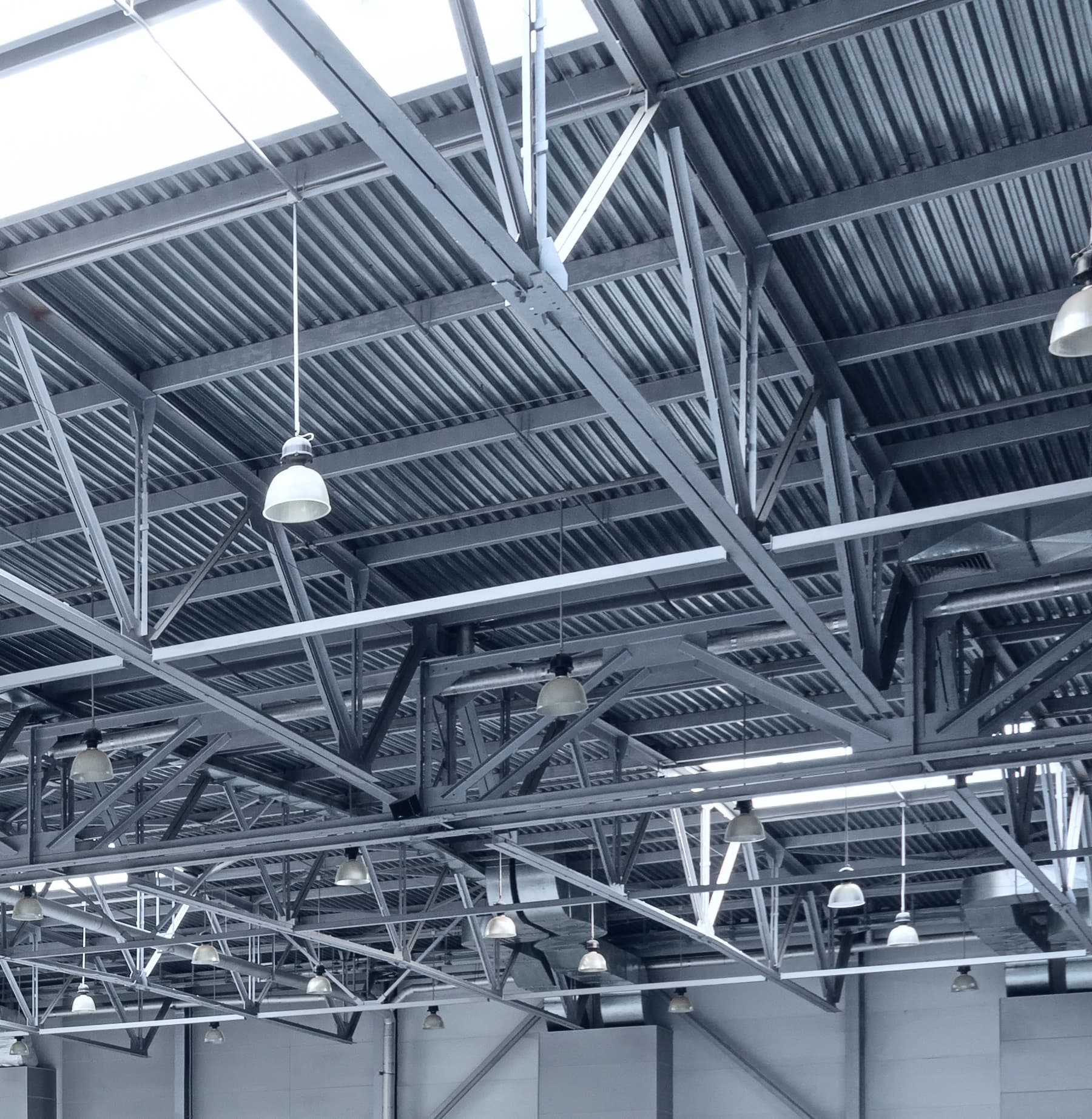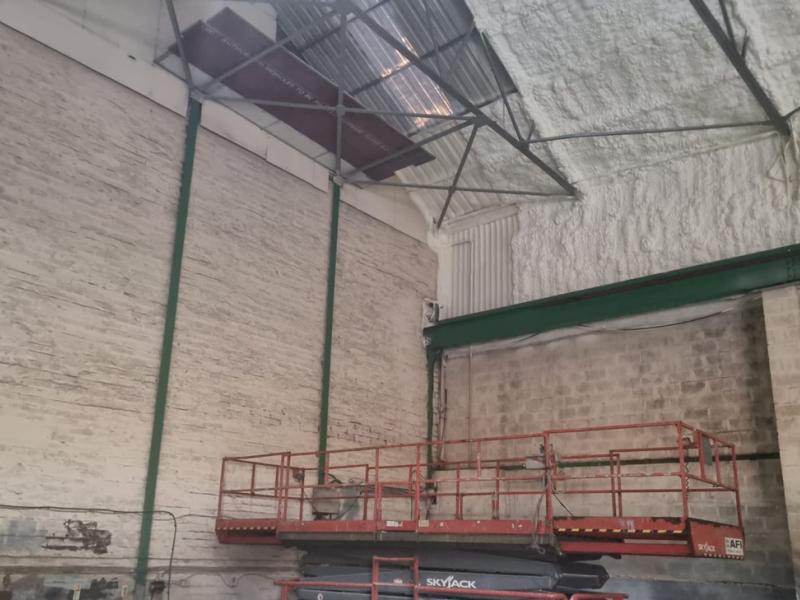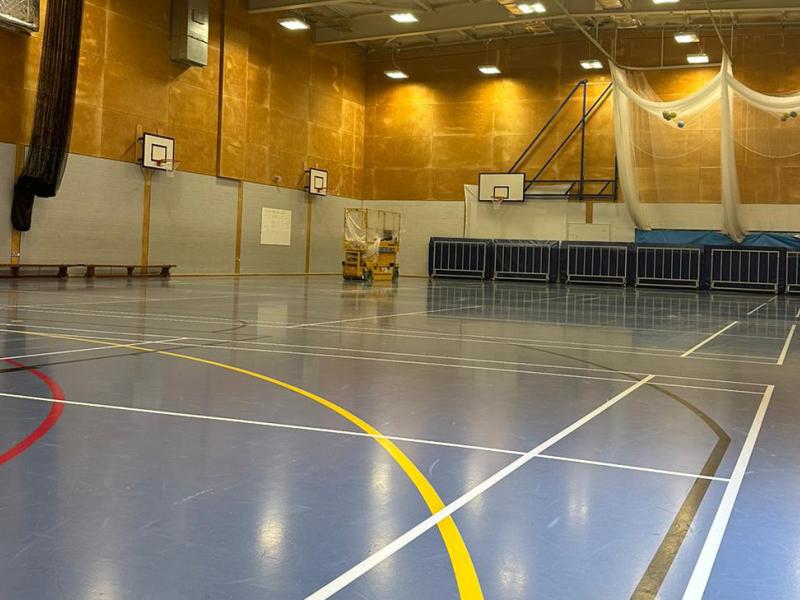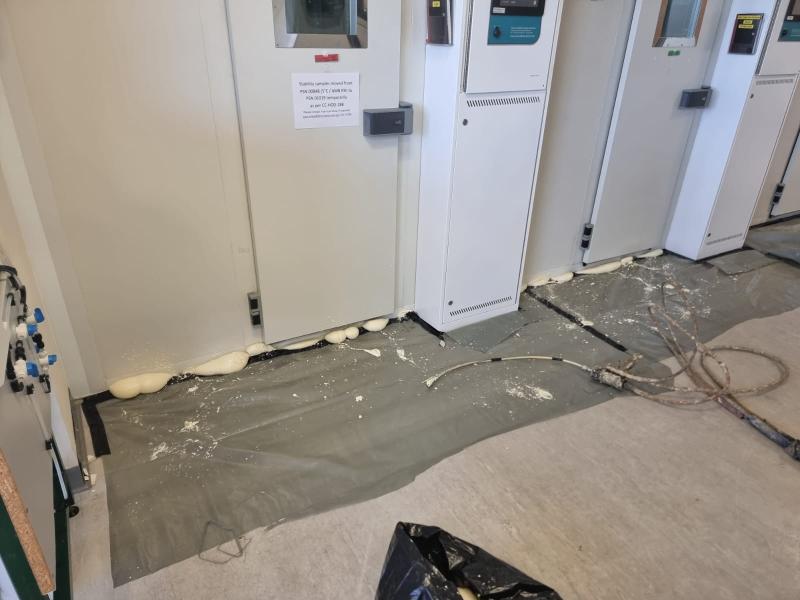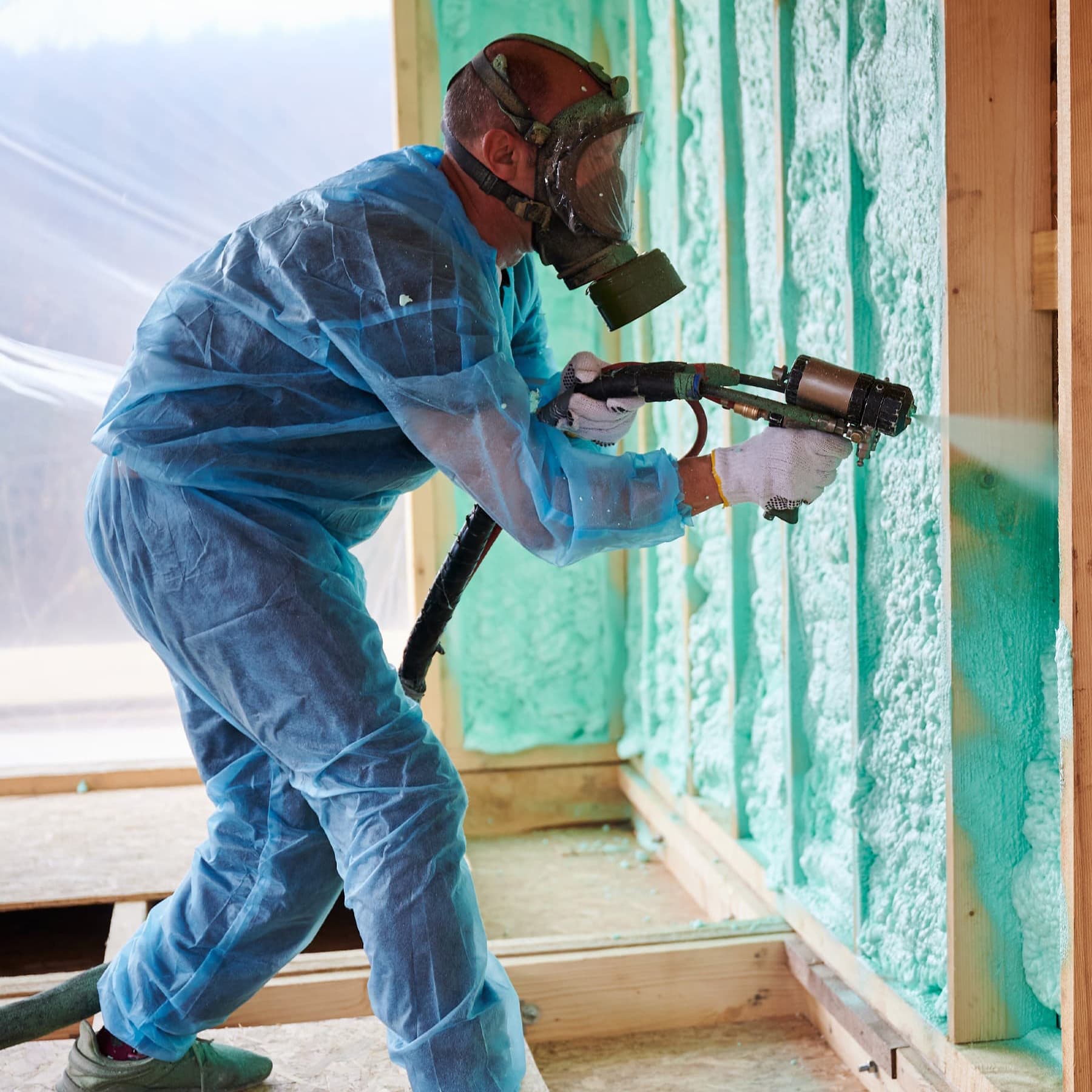Condensation Control
Condensation problems on metal walls and roofs within commercial or industrial buildings may be totally eliminated with spray foam polyurethane insulation.
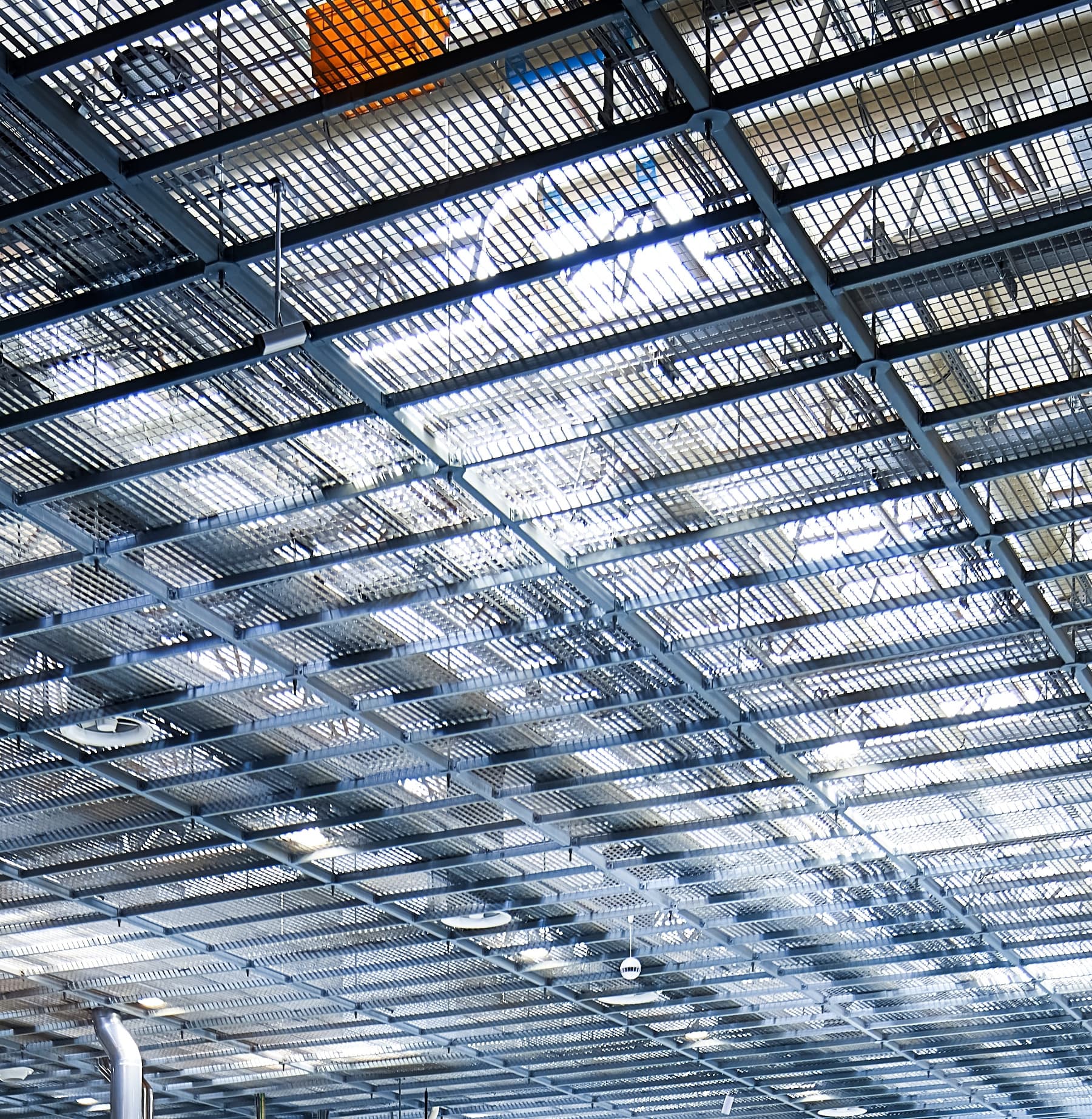
Upon spray application, the foam forms a continuous insulation layer that adheres to the surface providing unrivalled thermal and acoustic insulation and crucially preventing condensation from occurring.
Condensation problems tend to be prevalent during the cold winter months, particularly on single skin metal roof structures. The metal transfers temperature from one side to the other rapidly (compared to thermal transfer within composite sheet roofs). Where there is external frost, internally it is likely to be the same temperature. It only takes a little interior heat to condense and drip, potentially damaging the contents of the building and creating unpleasant working conditions for employees.
Spray foam negates condensation problems easily, swiftly and with minimum inconvenience and mess. It is applied directly to the surface (adhering to almost all materials) and creates an uninterrupted insulation layer that seals all gaps and crevices. Once the interior surface is well insulated, the colder external temperature cannot penetrate so readily, therefore the roof’s ‘dew point’ is transferred back to the outside.
Any moisture within the building remains circulating within, rather than condensing on the surface.
Since the spray foam insulation creates a continuous layer, there are no gaps allowing heat escape so condensation and resulting water dripping cannot occur.
Similar to the insulation material utilised within composite panelling, spray foam insulation ensures that the interior of a metal surface (roof or wall) remains at a very similar temperature to the building’s interior.
Compared to re-roofing with composite panelling, spray foam insulation is far less time consuming, disruptive and costly, tackling all condensation problems (often prevalent within older buildings).
Traditional insulation techniques for profiled sheets using boarding or fibre glass are less effective than spray foam, because no matter how well sealed, there will always be joins between the panels – weak areas where heat and moisture can escape and condensation problems arise.
Spray foam insulation has no areas of weakness or vulnerability, so a condensation-free future may be guaranteed.
Contact Metropolitan Insulation Services for advice and practical solutions for any condensation problem.
